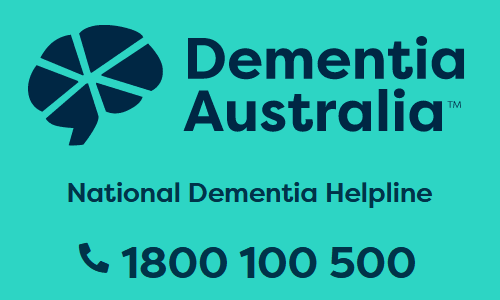Introduction
What dementia is and what it isn't
Dementia describes a collection of symptoms that are caused by disorders affecting the brain. It is a neurodegenerative process that affects cognition (thinking), communication, behaviour and the ability to do everyday things. Dementia is not one specific disease. Alzheimer’s disease is the most common form of dementia. There are many other types of dementia that can impact on a person in different ways. Each person’s experience of dementia will be different.
In all types of dementia, brain function is affected enough to interfere with the person’s normal life. Dementia is not a normal part of ageing. It is not a mental illness. Dementia can happen to anybody, but it is more common after the age of 65 years. At present there is no cure for dementia. But there are many types of support that health professionals can offer to enable people with dementia to continue to live well and enjoy life.
When you have dementia, much of your life continues as it was
You’re still the same person, with the same likes and dislikes, the same culture and beliefs, the same family and community. None of that has changed.
But some other things have changed. You’ve been told you have a condition that will have an impact on your life. Your thinking might not be as clear as it once was. And you might not be able to get around as well as you could.
Other changes lie ahead. It helps to think about how you might adapt to change.
In recent years, health professionals have learnt a lot about ways to improve the lives of people with dementia. They understand that they should treat you with dignity at all times.
Allied health professionals – social workers, occupational therapists, dietitians, speech pathologists, physiotherapists, neuropsychologists and others – can all work with you and your carers1 and family on this.2 Some will have particular expertise in working with people living with dementia. Unfortunately, they are not all available in all parts of Australia.
If you have dementia, this booklet is for you. It doesn’t matter whether you’ve just found out about it, or whether you’ve been living with dementia for years. Or what type of dementia you have. It will help you think about where you are now, where you would like to be and how you might get there.
Your GP or your geriatrician, if you have one, might be able to point you to a local allied health professional. Allied health professionals can work with you and your GP as a team to support you.
There’s a lot you can do. There’s a lot that others can do by working with you. Talking to allied health professionals is a good starting point. There’s some overlap between what they do, so you don’t need to talk to all of them. You can start with just one.
There is a companion booklet for health professionals called Better health for people living with dementia: A guide on the role of allied health professionals. It has more details about the ways in which allied health professionals can help.

Definitions
- ‘Carers’ is the term used in this booklet to refer to people providing care to a person with dementia. Some people prefer the term ‘care partners’, and some people don’t like either term. It does not include paid workers who provide care. It does include carers in receipt of the Australian Government carer payment and carer allowance.
- Of course nurses, doctors, multicultural health workers and many others can help too, but this booklet concentrates on allied health professionals.
The National Dementia Helpline is an Australian Government funded initiative.


